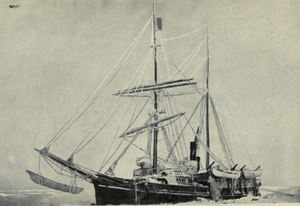About a year before the Great War, a team of twenty-five men set sail on the HMCS Karluk to explore the islands of the Canadian Arctic, the vast stretch of ice and ocean between the MacKenzie River and the North Pole. It was a harrowing voyage. Midway through the trip, as winter's onset occurred far too quickly, the Karluk became trapped in the ice, eventually sinking to the bottom of the sea. Happily, the crew was able to retrieve quite a bit of equipment, food, and supplies, sufficient to support them for the winter they realized they would now be forced to spend on the ice.
Almost immediately, however, things began to go wrong. Unstable ice, several lost search parties, an arduous and exhausting journey to Wrangel Island, the nearest land, and even more trouble getting from Wrangel Island to the shore of Siberia and, eventually, Alaska, proved devastating. By the time, Captain Robert Bartlett was able to arrange rescue the next spring, half the crew had died. The expedition returned a semblance of its original self.
Throughout, however, the men aboard the ship never lost hope in their mission--and themselves. Their perseverance is potent testament to the resilience of the human spirit in some highly abject circumstances. Reading the account reminded me of the travels and travails of Ernest Shackleton at the opposite end of the world (see the story of the Endurance).
Morally, we humans can be incredibly broken beings. Physically and emotionally, however, though we are far from perfect, we have an astonishing capacity to sustain ourselves.
Maybe the world really has a point. Maybe it really has meaning. Otherwise, why would anyone bother?

No comments:
Post a Comment